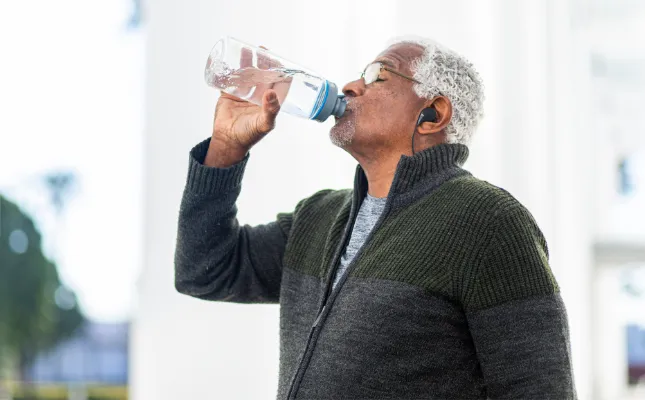As we age, paying attention to our health becomes even more crucial, and adequate hydration plays a vital role in this process. For seniors, in particular, ensuring proper water intake is essential for maintaining proper bodily function and promoting overall well-being. Let’s explore the various benefits that water offers for senior health.

1. Proper Hydration: Dehydration is a common concern among seniors due to physiological changes that reduce the sensation of thirst and the body’s ability to retain water. Drinking water regularly helps maintain a healthy fluid balance, preventing dehydration and its adverse effects such as fatigue, dizziness, and mental confusion.
2. Enhanced Cognitive Function: Studies show that dehydration can negatively affect cognitive function, including memory, concentration, and alertness. Staying well-hydrated can help preserve brain function and reduce the risk of cognitive decline in seniors.
3. Cardiovascular Health: Water plays a vital role in cardiovascular health, helping to maintain blood pressure within healthy levels and facilitating the transport of nutrients and oxygen to the body’s cells. Adequate hydration may reduce the risk of cardiovascular diseases such as hypertension and stroke.
4. Digestion and Nutrient Absorption: Water is essential for the proper functioning of the digestive system, facilitating the digestion of food and the absorption of essential nutrients. Seniors with adequate water intake may experience improvements in bowel regularity and overall gastrointestinal health.
5. Support for Renal Function: Staying hydrated is crucial for kidney health, as water helps eliminate toxins and waste from the body through urine. Dehydration can strain the kidneys and increase the risk of kidney problems such as kidney stones and urinary tract infections.
Tips for Staying Hydrated:
- Drink at least eight glasses of water per day, or as recommended by your doctor.
- Consume water-rich foods such as fruits and vegetables to increase your total fluid intake.
- Keep a water bottle handy and take small sips throughout the day.
- Limit the consumption of sugary and caffeinated beverages, which can have diuretic and dehydrating effects.